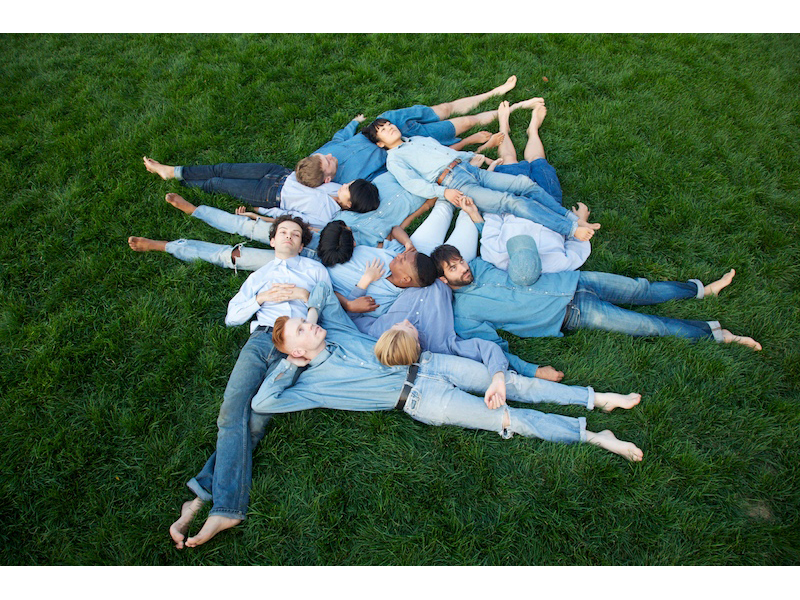Global Denim Community
Keywords: americanisation, anthropology, blue jeans, capitalism, coca cola, denim, denim manifesto, dismagazine.com, Dystopia, global denim project, lauren boyle, marco, marco roso, planet dis, solomon chase, textile
Upon reading Daniel Miller and Sophie Woodward's Manifesto for a study of denim, in which they “called to arms” various academics—whether in anthropology or clothing studies—to consider the topic of denim deeply and seriously, we decided to do a tribute of our own to the #1 textile on the planet.
Denim is clearly a global presence, it not only exists in every country in the world, but in many of these it has become the single most common form of everyday attire. We counted the proportion of persons wearing denim blue jeans out of the first hundred to pass by on random streets in sites such as London, Istanbul, Rio, Manila, Seoul and San Francisco. This proportion ranged from 34% to 68%, suggesting that soon, at any given moment, more than half the world will be wearing this single textile. Although there are many other global forms, ranging from foods to Coca-Cola through to car brands, we argue that denim is special, being as much a refusal as an acceptance of capitalist pressures such as fashion. Also, a major part of the explanation of its growth is that it connects intimacy and personalization to ubiquity in a manner that is perhaps unique, even within the genre of clothing.
In meta-sociology, the observation that the majority of the world’s population might wear the same thing is likely to lead to an appeal to some grand trend of modern lide: the dynamics of capitalism perhaps, or the rise of individualism. Anthropologists, by contrast, would expect to negate such contentions through ethnographies that demonstrate that, in each instance, people wear denim for reasons specific to the particular context.
Even the terms used by meta-sociology, such as “capitalism” and “Americanisation” would be subject to anthropological claims that we confront plural capitalisms. However, if the grounds for wearing denim are always specific to that region or population, then how can anthropology contribute to the other factor that needs explaining; that is, the global ubiquity?









